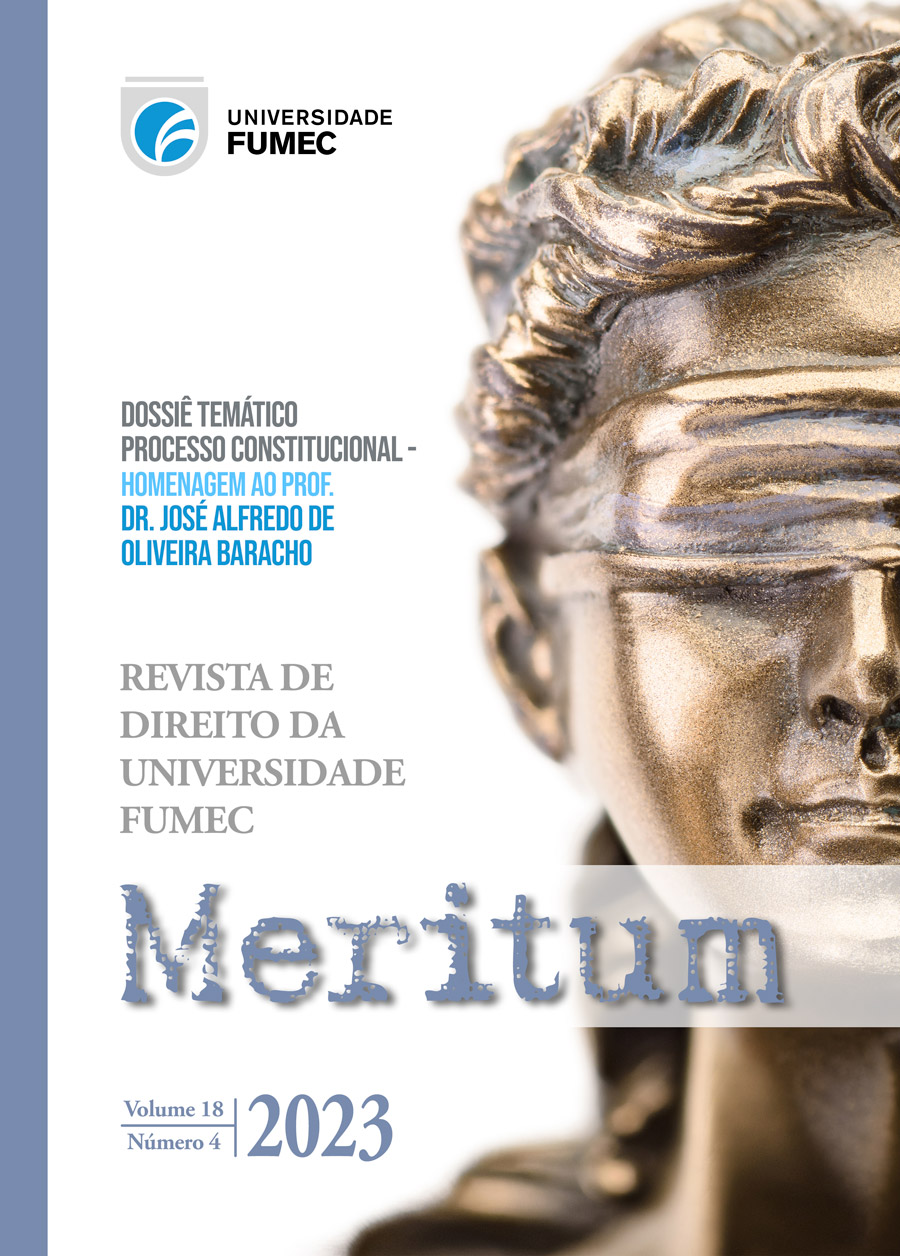TAKING THE RIGHTS OF PERSONALITY SERIOUSLY:
: AN ANALYSIS BETWEEN JUDICIAL ACTIVISM, IN THE CONTEXT OF THE JUDICIALIZATION OF LIFE, AND THE MANDATORY CHARACTER OF THE PRECEDENTS OF THE “VERTICE CUT”
DOI:
https://doi.org/10.46560/meritum.v18i4.9053Abstract
In the context of the post-World War II period, marked by a significant violation of human rights, and the social yearning for the expansion of protection to the person, the model of the Liberal State and of Law as synonymous with law proved to be insufficient, giving vent to the post-WWII philosophical movement. positivism and the neoliberal state model, in which the principles become part of the concept of norm and judicial protagonism - in the face of the judicialization of life - assumes a role of revelation, including, in Brazil, with the Federal Constitution of 1988. The conceptual framework of some institutes invites legal uncertainty, leaving the delimitation in the hands of the judge's subjectivity, expanding the space to which cognitive biases predominate in decision-making. In this scenario, the present study is dedicated to analyzing how personality rights can have their effectiveness impacted depending on the position of the judge, whether moved by judicial activism, or by the automatic application of judicial precedents, without claiming to exhaust the theme, emphasizing how cognitive biases enter. In order to do so, we will proceed to a bibliographic review and the analysis of some judgments in which there is personality right as a background and a more activist and/or precedent-bound judicial stance, highlighting, as a priori, neither one nor the other. can be discarded when constitutional paths to the respect of the person in its condition of holder of dignity are revealed. Hence the importance of knowing both institutes and of seeking parameters of action with prudence, whether from the single judge or from the collegiate bodies.
Downloads
Published
Issue
Section
License
Autores que publicam nesta revista concordam com os seguintes termos:
- Autores mantém os direitos autorais e concedem à revista o direito de primeira publicação, com o trabalho simultaneamente licenciado sob a Licença Creative Commons Attribution que permite o compartilhamento do trabalho com reconhecimento da autoria e publicação inicial nesta revista;
- Autores têm autorização para assumir contratos adicionais separadamente, para distribuição não-exclusiva da versão do trabalho publicada nesta revista (ex.: publicar em repositório institucional ou como capítulo de livro), com reconhecimento de autoria e publicação inicial nesta revista;
- Autores têm permissão e são estimulados a publicar e distribuir seu trabalho online (ex.: em repositórios institucionais ou na sua página pessoal) a qualquer ponto antes ou durante o processo editorial, já que isso pode gerar alterações produtivas, bem como aumentar o impacto e a citação do trabalho publicado (Veja O Efeito do Acesso Livre).






